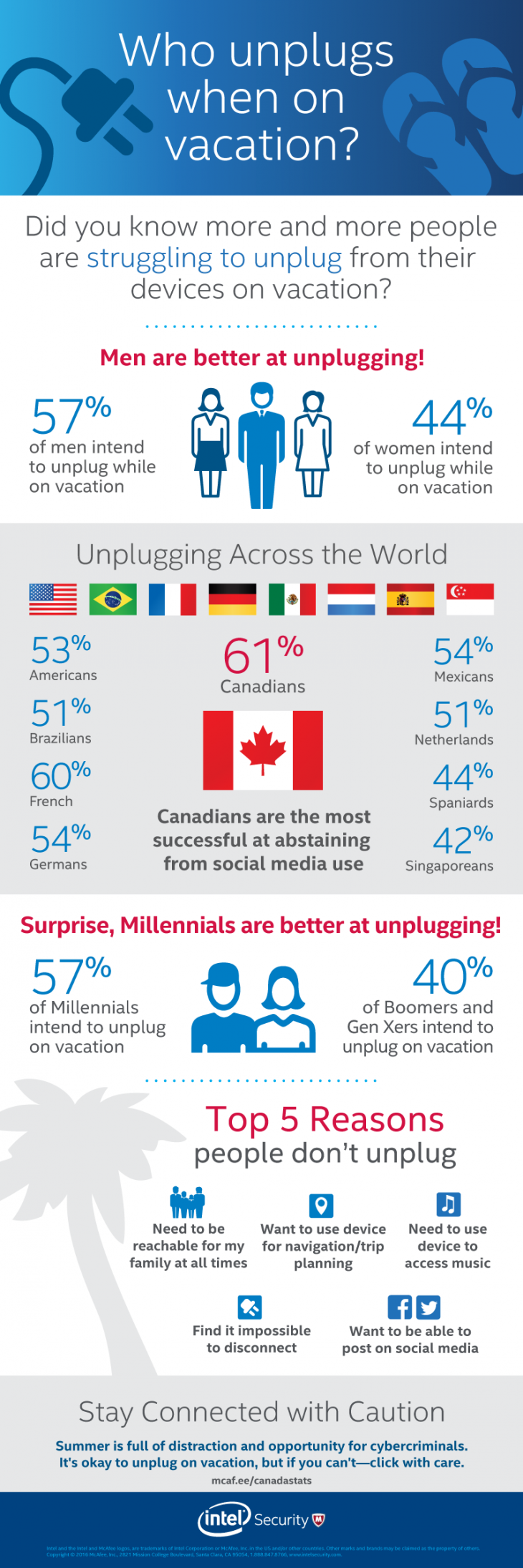
MARKHAM, ON – With summer travel season on the horizon, a new survey by Intel Security says that Canadian millennials are more likely to unplug while on vacation than Gen X, and that men are better at unplugging than women.
The study ‘Digital Detox: Unplugging on Summer Vacation’ was conducted in March 2016 to better understand the ways consumers stay digitally connected while travelling and the ways they may unknowingly be putting their personal identity and devices at risk. The online global study polled 13,960 consumers (including 816 Canadians) between the ages of 21 to 54, evenly split by gender.
Roughly 64% of Canadian respondents define being unplugged as having no internet usage at all, while half said being unplugged means they did not make any phone calls. The survey challenges a misconception in society that younger Canadians would be the least likely to leave their devices behind on vacation – 51% of Canadians in their 20s said they had gone on vacation with the intention to unplug, while only 35% of those Canadian respondents between 40 and 50 years of age had done so.
Other highlights from the study include:
– More than half (54%) of Canadian participants who intended to unplug from their digital devices on vacation were unable to do so;
– Canadian men are more willing to leave their phone at home while going on vacation. Approximately 45% of men said they would leave their phones behind, while only 39% of women said that they would;
– Canadians were the most successful at abstaining from social media use (61%) while on vacation compared to French (60%), Mexicans (54%) Germans (54%), Americans (53%), Dutch (51%), Brazilians (51%), Spaniards (44%) and Singaporeans (42%);
– Canadians were the second most successful at abstaining from work emails (60%) while on vacation compared to Singaporeans (61%), Germans (59%), Mexicans (59%), the French (56%), Dutch (54%), Brazilians (53%), Spaniards (52%) and Americans (49%).
The study added that email, geo-tagging and social media activities can jeopardize consumers’ security while travelling.



